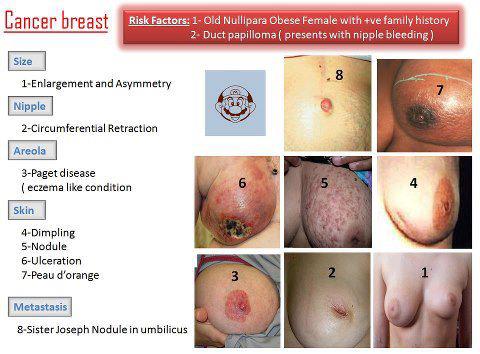Understanding Prostate Cancer: Diagnosis and Stages
Being told that you have prostate cancer can be a frightening experience. When you are told of your condition, it's common to be so overwhelmed that you neglect to ask important questions, only to think of them once you've gotten home. Understanding your illness is often the first step on the road to recovery. Here's what you need to know about your diagnosis and how the cancer is staged:
1.Diagnosing Stages
Once a man has been diagnosed with prostate cancer, his physician will perform one or more additional tests to determine the stage of cancer. These tests may include a digital rectal examination, a blood test, an MRI of the prostate or skeleton, a CT of the pelvis and abdomen, or a surgical procedure to examine lymph nodes. While not all men will need each test, most men will undergo at least one of these tests in order for their physician to better stage the cancer.
2.Stage I
If you are diagnosed with stage I prostate cancer, this means that your cancer is microscopic and only located in the prostate. Your cancer will not be large enough for your doctor to manipulate digitally. Additionally, the cancer will not be able to be detected on any digital imaging of the prostate gland. Stage I cancer of the prostate will be discovered by a needle biopsy or in tissue that is removed during other surgical procedures.
3.Stage II
In stage II prostate cancer, the cancer is still located solely in the prostate. The cancer may be found in one-half or less of one lobe of the prostate, in more than one-half of one lobe or in opposite sides of the prostate gland. As in stage I prostate cancer, stage II cancers cannot be felt during digital rectal exams, nor will the cancer be visible on any type of imaging.
4.Stage III
In stage III prostate cancer, the cancer has spread outside of the prostate to nearby tissues. The prostate specific antigen, or PSA, score can be at any level and the Gleason score will range between two and ten. Your doctor may choose to treat you with external-beam radiation therapy, hormone therapy or suggest you for a clinical trial of new therapies. Alternatively, your doctor may suggest no treatment at all and, instead, adopt a watch and see approach to your cancer.
5.Stage IV
When your prostate cancer has metastasized, or spread, to other areas of your body, you are diagnosed with stage IV cancer. Your cancer may be found in your bones, liver, lungs or lymph nodes. Stage IV prostate cancer, like other cancers that have reached the fourth stage, is considered to be the most serious. Without immediate treatment, this type of cancer will likely prove fatal. Your doctor may prescribe chemotherapy, radiation therapy, hormone therapy or a radical prostatectomy combined with other therapies.
The better you understand your diagnosis and the stage of prostate cancer that has been discovered, the better equipped you will be to partner with your oncologist to aggressively tackle your disease. If you have been diagnosed with prostate cancer, do not hesitate to approach your doctor with any questions that you may have. Your gained knowledge may just save your life.
1.Diagnosing Stages
Once a man has been diagnosed with prostate cancer, his physician will perform one or more additional tests to determine the stage of cancer. These tests may include a digital rectal examination, a blood test, an MRI of the prostate or skeleton, a CT of the pelvis and abdomen, or a surgical procedure to examine lymph nodes. While not all men will need each test, most men will undergo at least one of these tests in order for their physician to better stage the cancer.
2.Stage I
If you are diagnosed with stage I prostate cancer, this means that your cancer is microscopic and only located in the prostate. Your cancer will not be large enough for your doctor to manipulate digitally. Additionally, the cancer will not be able to be detected on any digital imaging of the prostate gland. Stage I cancer of the prostate will be discovered by a needle biopsy or in tissue that is removed during other surgical procedures.
3.Stage II
In stage II prostate cancer, the cancer is still located solely in the prostate. The cancer may be found in one-half or less of one lobe of the prostate, in more than one-half of one lobe or in opposite sides of the prostate gland. As in stage I prostate cancer, stage II cancers cannot be felt during digital rectal exams, nor will the cancer be visible on any type of imaging.
4.Stage III
In stage III prostate cancer, the cancer has spread outside of the prostate to nearby tissues. The prostate specific antigen, or PSA, score can be at any level and the Gleason score will range between two and ten. Your doctor may choose to treat you with external-beam radiation therapy, hormone therapy or suggest you for a clinical trial of new therapies. Alternatively, your doctor may suggest no treatment at all and, instead, adopt a watch and see approach to your cancer.
5.Stage IV
When your prostate cancer has metastasized, or spread, to other areas of your body, you are diagnosed with stage IV cancer. Your cancer may be found in your bones, liver, lungs or lymph nodes. Stage IV prostate cancer, like other cancers that have reached the fourth stage, is considered to be the most serious. Without immediate treatment, this type of cancer will likely prove fatal. Your doctor may prescribe chemotherapy, radiation therapy, hormone therapy or a radical prostatectomy combined with other therapies.
The better you understand your diagnosis and the stage of prostate cancer that has been discovered, the better equipped you will be to partner with your oncologist to aggressively tackle your disease. If you have been diagnosed with prostate cancer, do not hesitate to approach your doctor with any questions that you may have. Your gained knowledge may just save your life.



Cancer is indeed a troublesome disease. I appreciate you for guiding me about prostate cancer. Will check for its symptoms and I will also share your blog with my family and cousins.
ReplyDeleteProstate cancer occurs due to many reasons, one of them is using excessive hormone replacement injections for boosting testosterone. You should opt for safer alternative like natural testosterone pills made from herbs.
ReplyDeleteSo innovative recently particularly in the smart phones and apps sector. popcorntimes Popcorn Time is not offered on Google Play store.
ReplyDeleteThat enable them to authentically take part in the expedition of maths. sumdog sign in make sure that the information might be conserved outside.
ReplyDeleteDuplicate the URL of the video clip that you wish to download and install Tubidymobi stress over your favourite and also primary tracks precisely just what all of us long.
ReplyDeleteThis information is very useful. thank you for sharing. and I will also share information about health through the website
ReplyDeleteCara Mengobati Telapak Kaki Berlubang
Pengobatan Herbal Penyakit Rematik
Obat Herbal Walatra Berry Jus
Obat Tumor Jinak diatas Bola Mata
Obat Benjolan Di Ketiak
Pengobatan Alami menyembuhkan Sangkadi
Cara Menghilangkan Bekas luka
Cara Cepat Mengatasi Iritasi Kulit
ScoopFree rake immediately litterboxhubFree brushes up the waste into a covered Top Ways to Hide Your Cat’s Litter Box Hub compartment, leaving the clutter scenting tidy and fresh. Top Ways to Hide Your Cat’s Litter Box Hub Just replace the non reusable tray every See More Guide couple of weeks and the litter box is much this content like brand-new.
ReplyDeleteThe problem of prostate cancer is most common nowadays. Are you looking for professional prostate doctor near me, then visit Jersey Urology Group.
ReplyDeleteThe post is an engaging profusion of helpful information of Understanding Prostate Cancer: Diagnosis and Stages that is interesting and pleasingly composed. I pay tribute to your conscientious work on this and thank you very much for the sharing. free eBook about Hearing Loss and Hearing Aids
ReplyDeleteDiagnosis and treatment of breast cancer, breast cysts, lumps in the breast, breast cancer symptoms, and other breast health concerns if you want to visit our website click here breast cancer treatment
ReplyDelete